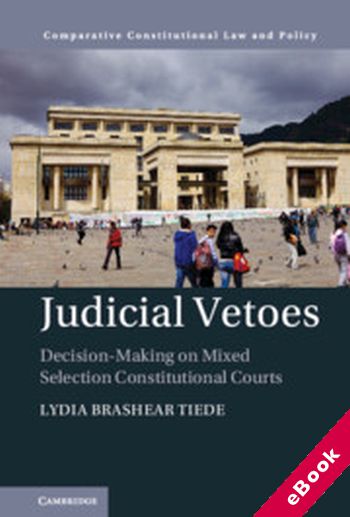
The device(s) you use to access the eBook content must be authorized with an Adobe ID before you download the product otherwise it will fail to register correctly.
For further information see https://www.wildy.com/ebook-formats
Once the order is confirmed an automated e-mail will be sent to you to allow you to download the eBook.
All eBooks are supplied firm sale and cannot be returned. If you believe there is a fault with your eBook then contact us on ebooks@wildy.com and we will help in resolving the issue. This does not affect your statutory rights.
How does the selection of judges influence the work they do in important constitutional courts? Does mixed judicial selection, which allows more players to choose judges, result in a court that is more independent and one that can check powerful executives and legislators? Existing literature on constitutional courts tends to focus on how judicial behaviour is motivated by judges' political preferences. Lydia Brashear Tiede argues for a new approach, showing that, under mixed selection, institutions choose different types of judges who represent different approaches to constitutional adjudication and thus have different propensities for striking down laws. Using empirical evidence from the constitutional courts of Chile and Colombia, this book develops a framework for understanding the factors, external and internal to courts, which lead individual judges, as well as the courts in which they work, to veto a law.